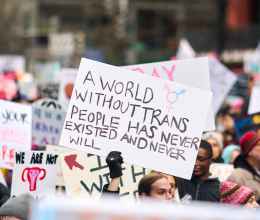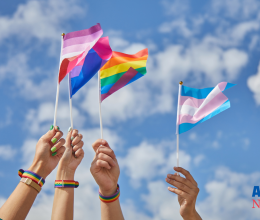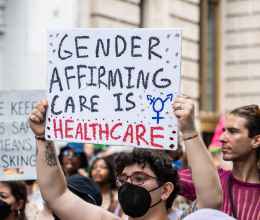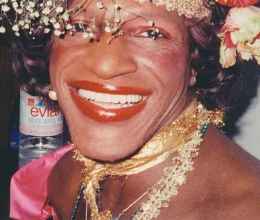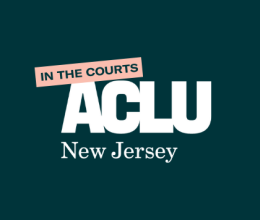
Civil Rights Groups Call on New Jersey to Extend Equal Rights to Same-Sex Couples
NEWARK – The American Civil Liberties Union of New Jersey (ACLU-NJ) applauds the U.S. Supreme Court’s decision in U.S. v. Windsor to strike down the discriminatory Defense of Marriage Act (DOMA), allowing for thousands of married same-sex couples to qualify for federal benefits afforded to married opposite-sex couples.
Edie Windsor
The plaintiff in the case, Edie Windsor, is represented by the ACLU.
The court’s decision now raises questions for same-sex couples who are in civil unions in New Jersey and for same-sex couples who were married elsewhere, but live in the Garden State. Same-sex couples in civil unions will remain ineligible for the hundreds of benefits that now will be granted to same-sex married couples in other states under the court’s decision.
In response to the Supreme Court’s decision, the ACLU-NJ and Garden State Equality have launched a new campaign to bring marriage equality to New Jersey.
Udi Ofer, executive director of the ACLU-NJ, issued the following statement about the Supreme Court’s historic decision:
“Given the Supreme Court’s ruling to strike down DOMA, New Jersey is now ground zero for the next big battle for marriage equality. Our state can no longer hide behind the federal government to justify its own discrimination. New Jersey needs to make a choice: will we continue a separate and unequal civil union system, or will we seize this opportunity to extend equal rights to New Jersey’s same-sex couples?
We believe that the choice is clear: New Jersey should enshrine the Supreme Court’s decision into our state’s law and end discrimination against LGBT couples who wish to marry.
Today’s decision will go down as a dividing line between an era of intolerance and a future of equality for gay and lesbian Americans. The roughly 130,000 same-sex couples in marriages across America, who have promised to take care of each other in sickness and in health, now have a promise from their government to respect the most important relationship of their lives. The nation’s highest court ruled once and for all that the government cannot treat a committed married couple as if they were strangers.
We in New Jersey now have even more to fight for. Yesterday, the federal government treated same-sex couples in all states as two strangers. Today, same-sex couples in states that recognize their marriages have validation from their government, while same-sex couples in states like ours still have second-class status. This decision is a joyous occasion, but until New Jersey recognizes that separate civil unions cannot be equal to marriages, Edie Windsor’s victory will be bittersweet.
New Jerseyans shouldn’t have to cross state lines to receive the equal treatment they deserve. Our fight will not be over until New Jersey implements the principles of the Supreme Court’s decision and ensures that discrimination against LGBT couples does not have a place in our free and democratic society.”
Troy Stevenson, the executive director of Garden State Equality, issued the following statement:
"We congratulate Edie Windsor, her attorneys, the ACLU, and the many organizations and activists who fought for this victory.
However, the day is also bittersweet for New Jersey and in dozens of states around the country where discrimination continues and same sex couples remain relegated to second-class citizenship.
There is no longer any excuse to delay: the state must rectify the discrimination taking place within our borders immediately. It is immoral as it is impractical to force any New Jersey family to be stripped of critical economic and legal protections every time they cross the Hudson or Delaware Rivers to return home from our closest neighboring states.
More than 60 percent of New Jerseyans across all racial, socioeconomic, and generational divisions agree that the time to enact marriage equality is now, and the government must not abdicate any further responsibility in granting equal rights immediately.
With today’s decisions by the Court, it’s become more clear than ever that not only are LGBT people treated as second-class citizens in New Jersey, but that New Jersey itself risks becoming a second-class state to its neighbors, where all people will be treated equally at all levels of government.”
